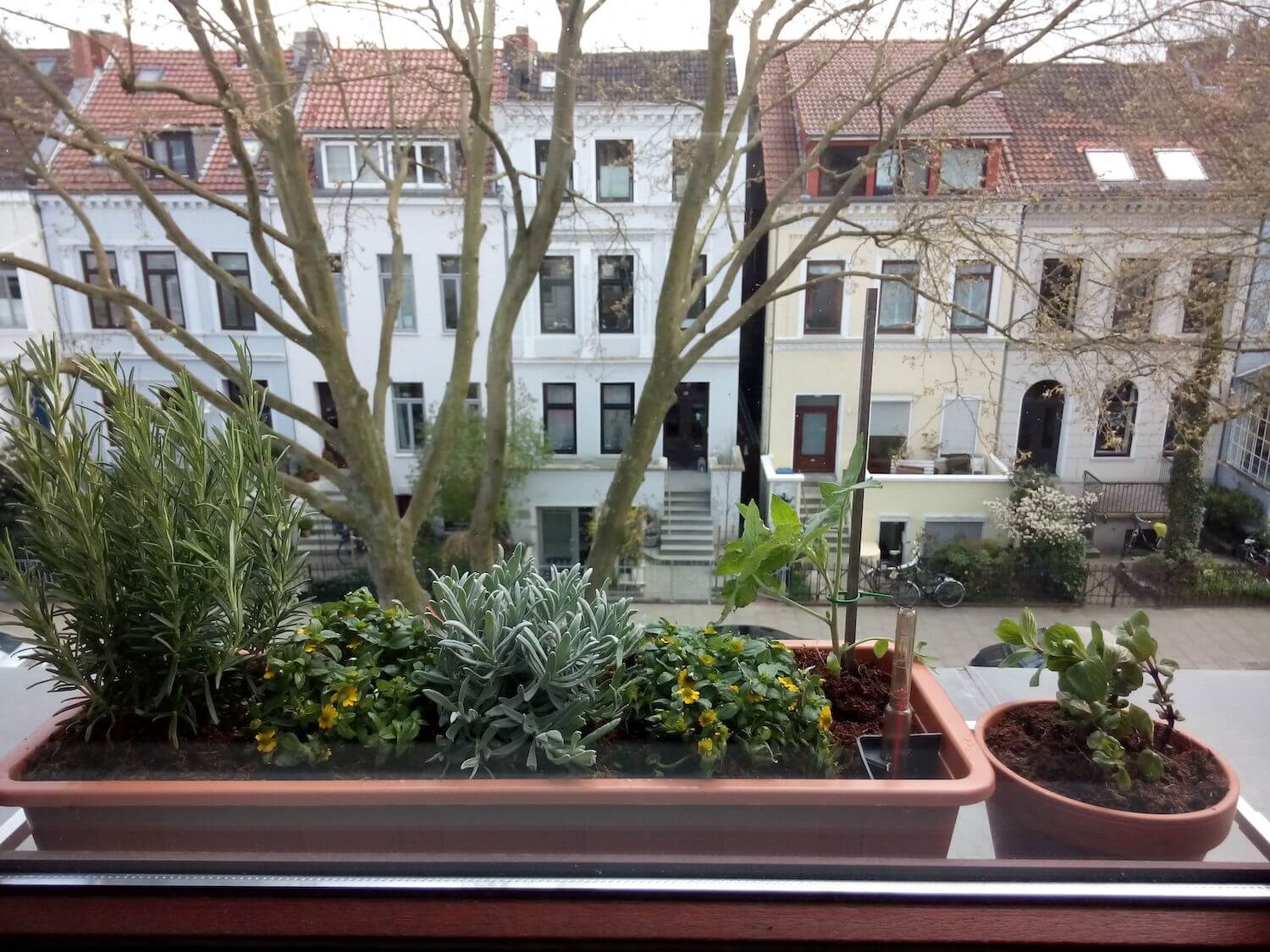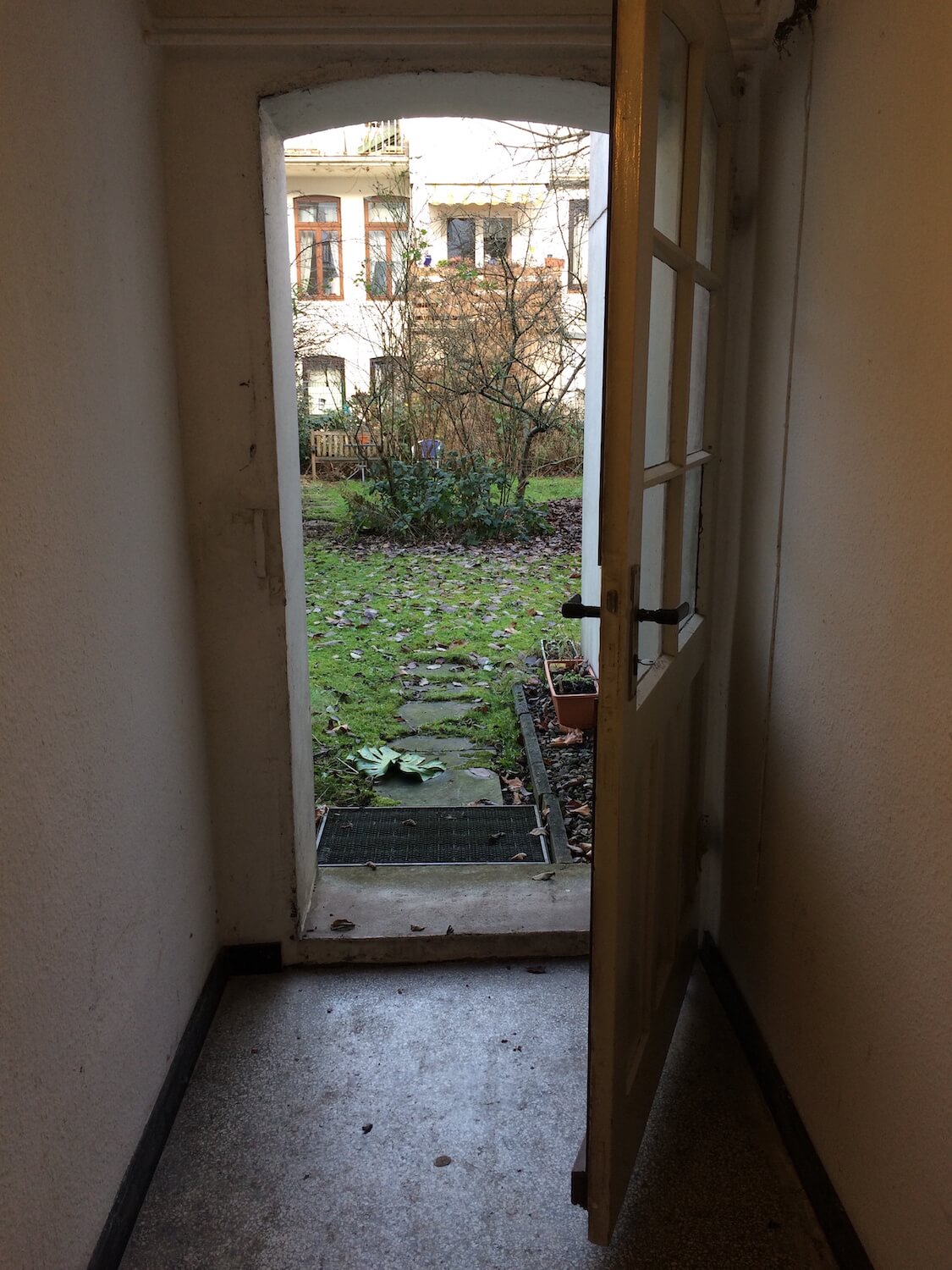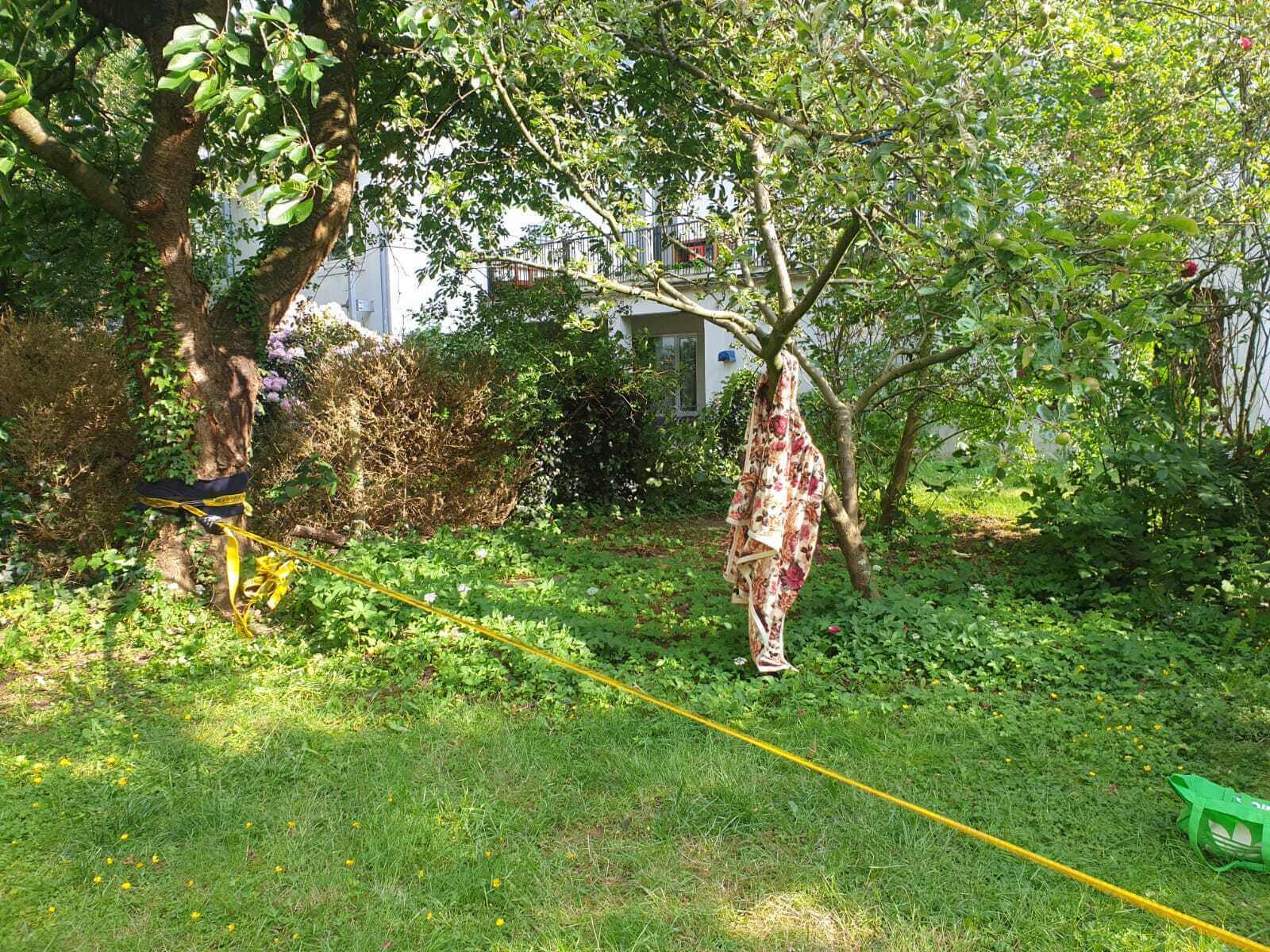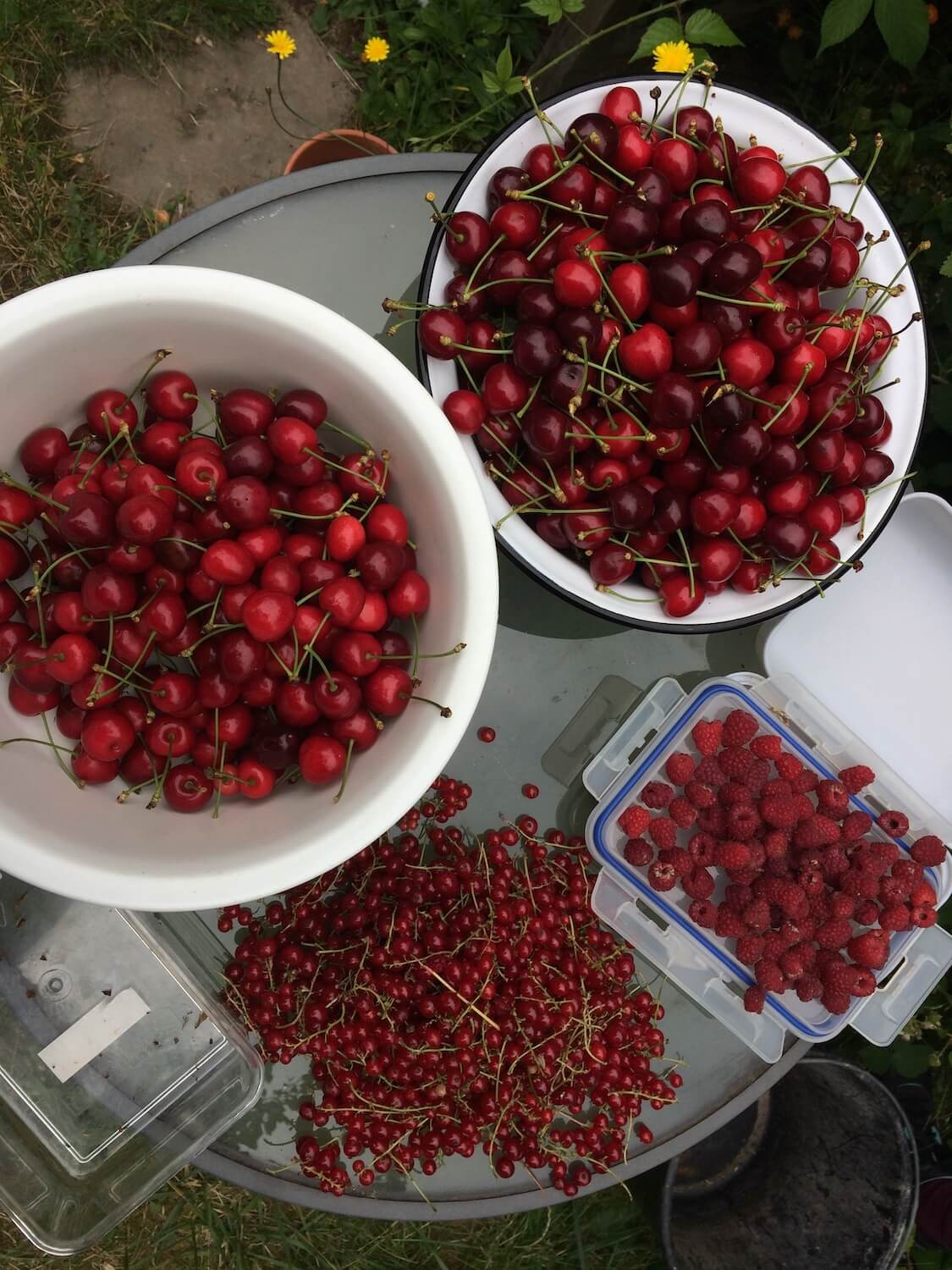Change of plans: Pandemia, plants, and becoming a permie

These days, most of our focus is usually on how the pandemic has constrained our daily and social lives –– schooling at home, staying at home, Christmas and New Year’s alone. The pandemic forced many of us to reorganize and adjust our everyday routines, social ties, holiday and leisure plans.
As for myself, Covid shattered my plans of travelling to Southeast Asia after submitting my PhD in the past year. At the same time, however, the pandemic and the resulting lockdown with its draining social isolation opened up the world of gardening to me.
The approximately 100m2-large garden on the backside of my apartment building in Northern Germany had not even been on my radar anymore at the time. My apartment only faces the main road in front of the house. We, the tenants, did not use to have access to the piece of land located between the two rows of terraced houses. This location is typical for gardens in Bremen’s residential neighbourhoods known for their classicist, historicist or art nouveau architecture – the old Bremen houses. You usually do not even get a glimpse of gardens from either side when passing them.
An elderly couple in the neighborhood had taken care of the garden that is home to a huge sweet cherry tree, an apple tree, rose bush, blackberry, raspberry, white and red currant shrubs, bamboo, and false sunflowers. You can check out the full list here: Humboldt’s Garden 2020. When the couple’s age didn’t allow them to do the physical labor of gardening anymore, the garden remained untouched for a few years.

So instead of visiting the beaches of Da Nang or Nha Trang, I found myself in this green piece of land right behind my house. The landlord granted us tenants access to it when the first lockdown hit Germany in spring 2020. We were lucky, considering the run on allotment gardens in Germany since the Corona pandemic. The German Federal Association of Gardening Friends (“Bundesverband Deutscher Gartenfreunde e.V.”) noted that the demand of allotment gardens was twice as high in 2020 compared to 2019.

The garden became my place of leisure, inspiration and recreation. After enjoying several barbecues and slacklining with friends, I came to see its value as a food resource. Without further ado, the summer days and Bremen’s moist and temperate climate put food on the table, mainly fruits.

During the summer and fall, I approached gardening without much consideration, following what my parents taught me in our family’s allotment garden back in East Germany. Some mowing, some cutting and removing of invasive blackberry shrubs –– making it “look nice.” My encounter with permaculture was quite a change of perspective from what I grew up with and knew about gardening in Western European societies. The circumstances of this year’s pandemic granted me a chance to start my own small-scale and regenerative gardening projects as part of a more ecologically aware way of living. Be part of this journey with me here on permapeople.org.
As a permie beginner, I am currently in the observation phase. But there is still much to be done before really getting started in spring 2021. I find the current winter months useful to finalize the observation, visioning and planning phases that Toby Hemenway suggests. As a next step, I am intending to sketch a map of the garden in its current state. I will keep you posted on the results and challenges of this monitoring and documenting process as it progresses.
I am happy to be in touch if you want to share your own garden stories or discuss your plants lists. Don’t hesitate to reach out!
Tina